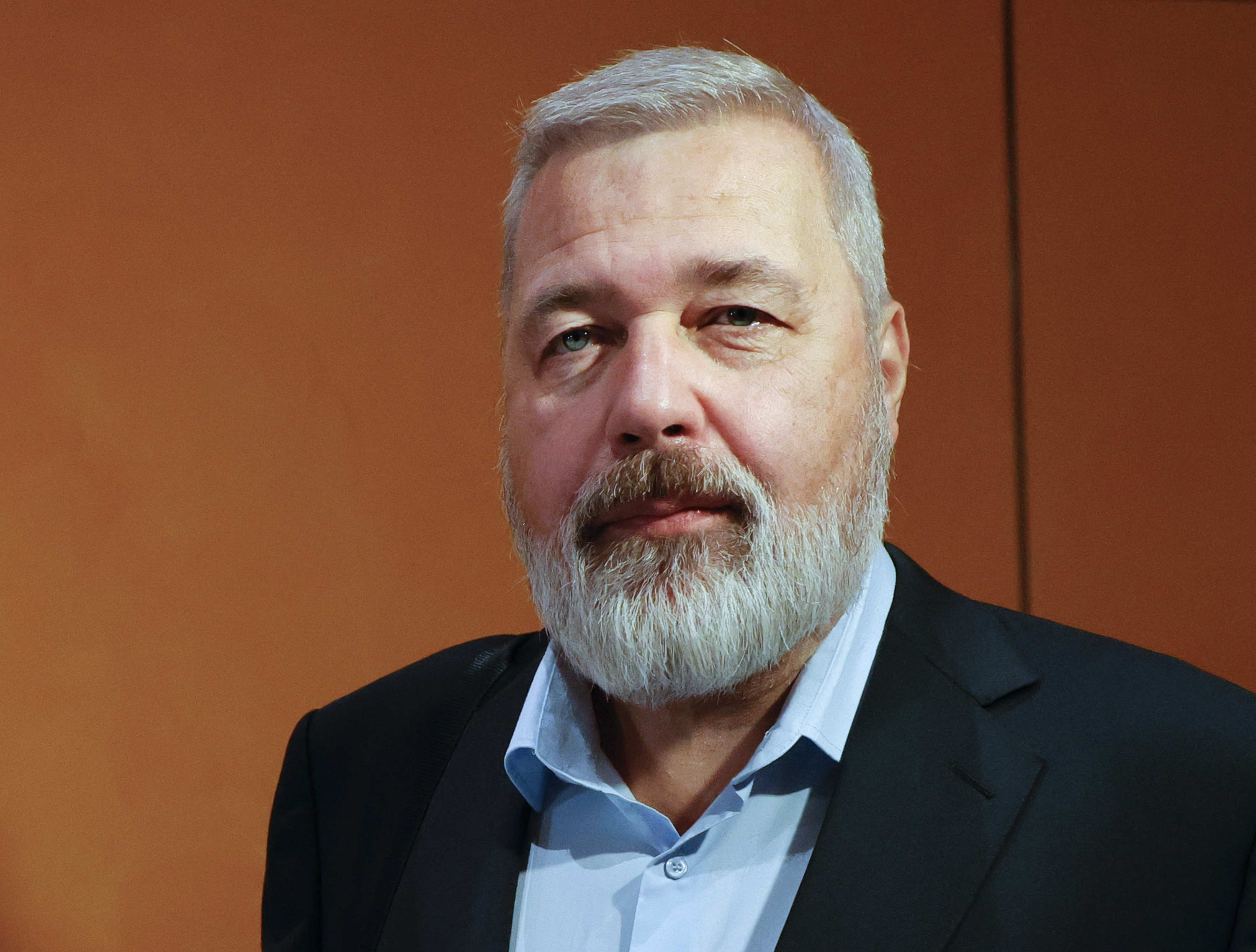The IPI global network strongly condemns Russia’s designation of Nobel Peace Prize laureate Dmitry Muratov, the long-time editor of renowned Russian independent newspaper Novaya Gazeta as a ‘foreign agent’.
Late on Friday evening, Russia’s Ministry of Justice published its weekly update of the long list of journalists, activists, and other public personalities who have been designated as ‘foreign agents’. Those on the list are excluded from public life in Russia, with regulations including a ban on teaching at universities, working with minors, and membership in consultative bodies representing Russia’s civil society.
Following his designation as a ‘foreign agent’, Muratov announced that he would contest the decision in court and would be stepping down from his position as editor-in-chief of Novaya Gazeta pending the court case. Deputy editor-in-chief Sergey Sokolov would replace him for this period, the media outlet announced in an email to readers.
Muratov received the designation for what the Ministry of Justice termed as “creating and disseminating work produced by foreign agents” as well as “using foreign media to promote opinions that are aimed at forming a negative attitude towards Russia’s interior and foreign policy”.
In practice, this means publishing content by the dozens of journalists who previously received the ‘foreign agent’ designation, including some working at Muratov’s Novaya Gazeta, as well as criticizing Russia’s invasion of Ukraine and repression at home, despite remaining within the already extremely narrow legal limits of what Russian citizens are still allowed to say.
Muratov received the 2021 Nobel Peace Prize along with Philippine journalist and IPI Executive Board member Maria Ressa. In 2022, Muratov traveled to New York City to speak at IPI’s World Congress where he told the audience at Columbia University that Russia faced a total eradication of independent journalism.
“This decision is another proof of Russian authorities using their legal apparatus to silence any alternative voices. The designation of Dmitry Muratov as a ‘foreign agent’ is an outrage”, IPI Executive Director Frane Maroević said. “In the eyes of the Russian government, a Nobel Prize laureate is labeled as a traitor and banned from public life simply for having dared to criticize his government on the international stage. It is symbolic that after punishing hundreds of citizens with this status, Russian authorities have now come to target Novaya Gazeta’s editor.”
Escalation of repression following war
As one of Novaya Gazeta’s founders, Dmitry Muratov has almost continuously led the newspaper, which has gradually moved most of its publications online, since 1995. Following the start of Russia’s full-scale invasion of Ukraine, Muratov auctioned his Nobel Peace Prize, donating the money from its sale to Ukrainian refugees. In April 2022, he was attacked with red paint as he boarded a train from Moscow to the Russian city of Samara by a self-proclaimed activist who denounced Muratov’s anti-war positioning.
Following the adoption of strict wartime censorship in Russia, Novaya Gazeta decided to split its operations between a collective of its journalists who left the country to be able to report freely, including on the invasion of Ukraine, and its other contributors, who chose to stay in Russia while making the choice to fully abandon the topic of the war, due to new regulations.
Initially adopted in 2012, Russia’s law on ‘foreign agents’ has been revised several times over the past decade to include an ever-wider range of potential targets for state-sponsored discrimination. To date, more than 500 organizations, journalists, activists, artists and other public personalities were handed the status.
While foreign agents are technically not outlaws and are formally allowed to continue some of their activities in Russia, the legal burdens placed on them in practice isolate them from society. Russian citizens receiving money from ‘foreign agents’ can also be designated as such, while media outlets and other groups who employ them run similar risks. “Foreign agents” are also obliged to submit costly and time-consuming audits of their financing, as well as regular reports on their public activity.
Currently, any organization, media or private individual can be designated as a ‘foreign agent’ simply by being declared to be ‘under foreign influence’ by the Russian Ministry of Justice or because of receiving funds of any amount from abroad (or from an entity itself receiving foreign funds).
As of September 2023, IPI registered no fewer than 85 cases of Russian journalists designated as “foreign agents” or fined in relation to this status for having denounced Russia’s full-scale invasion of Ukraine, with many more being designated as such on more general grounds.
